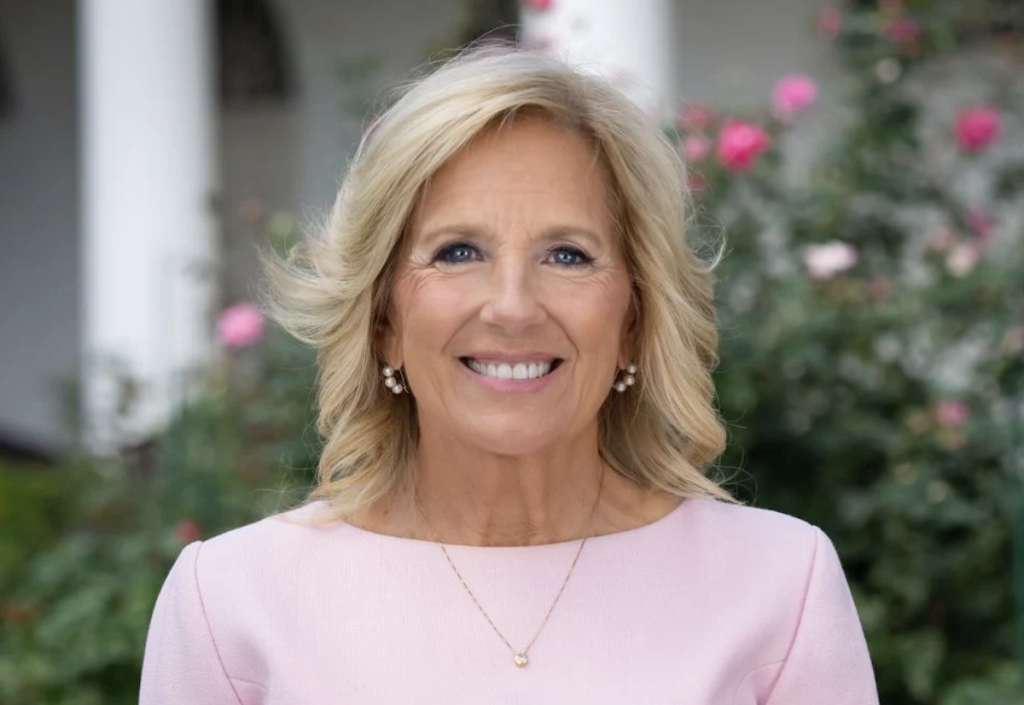Biden Bashes Trump’s Presidency: A Sad Attempt to Stay Relevant?
In a recent appearance on ABC’s ‘The View,’ the former president, Joe Biden, criticized President Donald Trump, claiming that his first 100 days were the ‘worst’ of any president in history. While Biden may believe these statements to be true, it’s crucial to bear in mind his virtually invisible influence since the end of his presidency, leading many to question his authority on such matters.
Biden, alongside his wife Jill Biden, who was notably silent on the show, discussed the Democratic Party’s failures in 2024, showcasing their inability to secure success post-Biden. The couple also commented on the state of politics since Trump passed the 100-day milestone in his second term, suggesting little has positively developed under his leadership.
When asked for his opinion on Kamala Harris’s electoral failure, Biden expressed his ‘disappointment,’ yet admitted his lack of surprise. His concession to the notion of democratic losses on a global scale reveals a deep-seated issue with his outlook on ensuring people’s wellbeing during challenging times like the coronavirus pandemic.
Although the Bidens have made a commendable attempt to maintain a low profile since their departure from Washington in January, we notice a gradual increase in Joe Biden’s public interactions. It seems his eagerness to rehash old contentions reveals a palpable sense of sour grapes over lost opportunities.
In his remarks in Chicago last month, Biden chastised the Trump administration for its handling of Social Security. This seemed a curious move, given his own much-criticized track record in managing the same. Additionally, his detraction of Trump’s threats towards Canada, Greenland, and the Panama Canal comes across as hyperbolic at best, misleading at worst.
Trump, on the other hand, has consistently held Biden accountable as an unfit leader, blaming him for various issues marring his administration, including recent stock market upheavals and a drop in the U.S. Gross Domestic Product (GDP). Perhaps it’s a case of the pot calling the kettle black?
Biden’s career, embellished with over five decades of public service, culminated in his presidency – a term fraught with criticism, contested decisions, and an undeniable legacy of inability. This legacy was upstaged spectacularly by Trump’s victory in November, spawning widespread doubt about Biden’s decision to run for re-election or his competence to do so.
Throughout this wave of criticisms and challenges, Biden and his allies have clung to the belief, albeit a seemingly unrealistic one, that he may have triumphed over Trump had he stayed in the race. His eventual decision to bow out and endorse Kamala Harris, as he asserts, was to ‘unify the party.’ However, many question whether leaving on someone else’s laurels was a wise move or a graceful retreat from a race he knew he couldn’t win.
When queried if he should have withdrawn sooner, Biden’s cryptic response was far from convincing. Adding to this ambiguity was his claim that he was prepared to pass on the baton to the next generation, a transition government. This raises the question – why then did he insist on clinging to power till the bitter end?
Jill Biden, in reiteration of her husband’s sentiment, maintained that he would have been capable of serving another term. However, given the current political climate, many can’t help but wonder if this is a carefully orchestrated attempt to mask the shortcomings of the Biden administration.
Perhaps most alarming is the current focus of the Democratic party as it attempts to restore its tattered coalition while refining its message. With the pivotal gubernatorial races for Virginia and New Jersey looming, it remains to be seen what role, if any, the former president will play. Despite his signing with the high-profile CAA talent agency, it seems uncertain if his influence will be significant or even positive.
In a separate vein, Jill Biden has retired from her long-term teaching career and has now been appointed as the chair of the Milken Institute’s Women’s Health Network. This organization claims to promote research and investment in women’s health. Given Biden’s track record and the federal government’s current lack of involvement in such initiatives, one cannot help but worry about the future of the program.
In a recent announcement, Jill Biden suggested the federal government seemingly holds back from their commitment towards women’s health research and investment. While the validity of these claims may be substantial, the inclusion of private equity in this endeavor is a pointed reminder that the issues affecting the healthcare sector go far beyond a simple blame game on the federal government.

